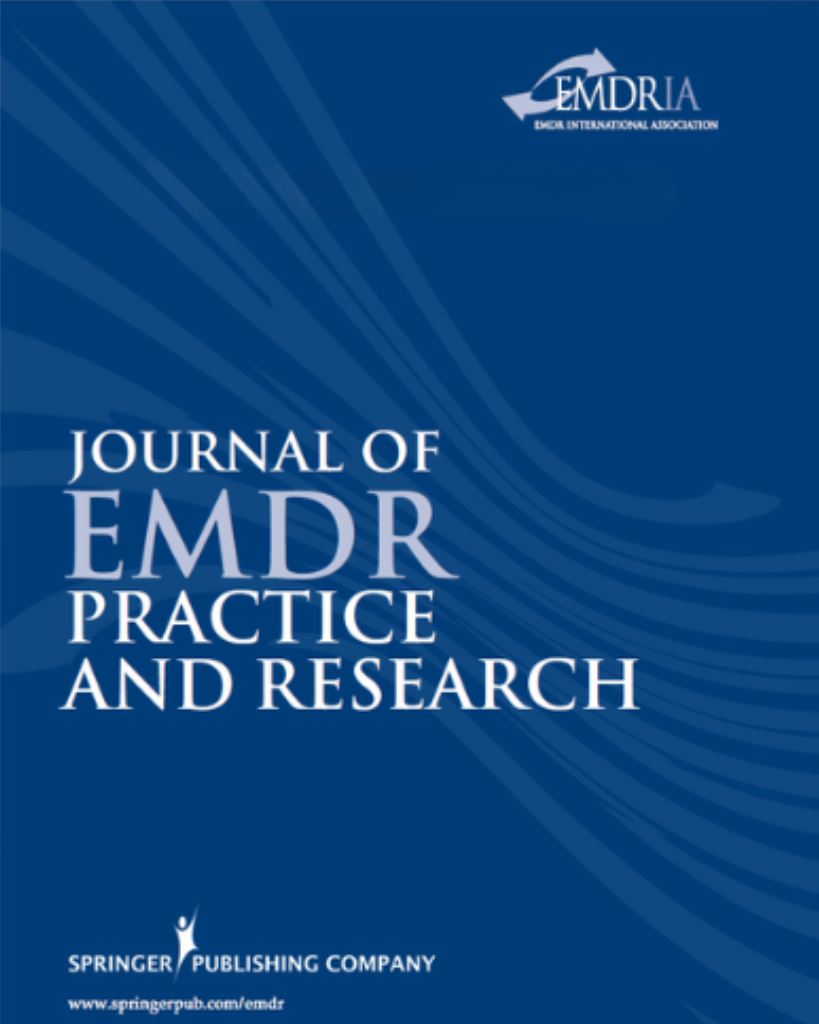Evaluating the Efficacy of EMDR With Grieving Individuals: A Randomized Control Trial
This study compared the effectiveness of EMDR with an integrated cognitive behavioral therapy (CBT) intervention for grief.
Article Abstract
“This study compared the effectiveness of eye movement desensitization and reprocessing (EMDR) with an integrated cognitive behavioral therapy (CBT) intervention for grief. Nineteen participants (12 females and 7 males) who identified themselves as struggling with grief were randomly allocated to treatment conditions. Each participant was wait-listed for 7 weeks and then received 7 weeks of therapy. There were no significant improvements on any measure in the wait-list period. In contrast, participants in both treatment groups improved on measures of grief (ηp2 = .47), trauma symptoms (ηp2 = .60), and distress (ηp2 = .34). There was no significant improvement in participants’ scores on a quality of life measure (ηp2 = .11). Neither treatment approach produced better outcomes than the other. For those who scored in the clinical range at intake, 72% achieved clinical and reliable change on the grief measure and 82% on the trauma measure. The study had several strengths, including randomization to treatment condition, multiple therapists, formal assessment of treatment fidelity, and the pretreatment and follow-up assessments were conducted by researchers blind to treatment assignment. Overall, the findings indicate that EMDR and CBT are efficacious in assisting those struggling with grief, and that those individuals reporting higher levels of distress and lower levels of functioning may benefit the most from an intervention.”
—Description from publisher
Article Access
Open Access
Meysner, L., Cotter, P., & Lee, C. W.(2016). Evaluating the Efficacy of EMDR With Grieving Individuals: A Randomized Control Trial. Journal of EMDR Practice and Research, 10(1), 2-12. https://doi.org/10.1891/1933-3196.10.1.2
About the Journal
The Journal of EMDR Practice and Research is a peer-reviewed publication devoted to integrative, state-of-the-art papers about Eye Movement Desensitization and Reprocessing. It is a broadly conceived interdisciplinary journal that stimulates and communicates research and theory about EMDR, and their application to clinical practice. The Journal of EMDR Practice and Research is the Official Publication of the EMDR International Association.
Date
March 1, 2016
Creator(s)
Larissa Meysner, Prudence Cotter, Christopher W. Lee
Topics
Grief
Practice & Methods
Comparative Studies
Extent
11 pages
Publisher
Springer Publishing Company
Rights
Copyright © 2016 EMDR International Association
APA Citation
Meysner, L., Cotter, P., & Lee, C. W.(2016). Evaluating the Efficacy of EMDR With Grieving Individuals: A Randomized Control Trial. Journal of EMDR Practice and Research, 10(1), 2-12. https://doi.org/10.1891/1933-3196.10.1.2
Series
10
Installment
1
Audience
EMDR Therapists
Language
English
Content Type
Article, Peer-Reviewed, RCT
Original Source
Journal of EMDR Practice and Research
Access Type
Open Access





